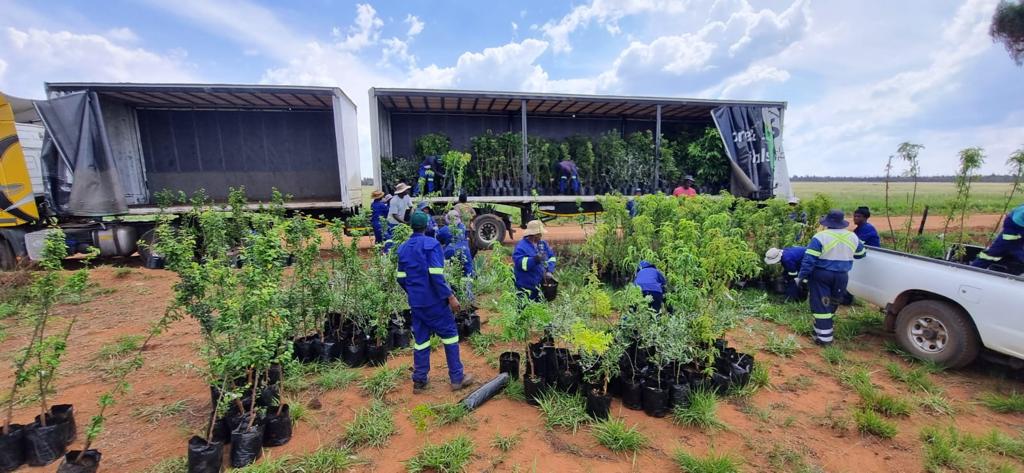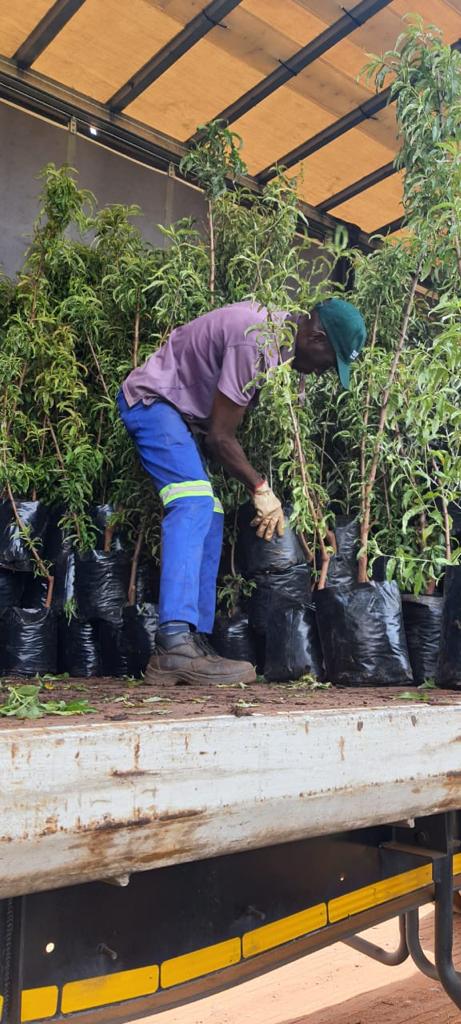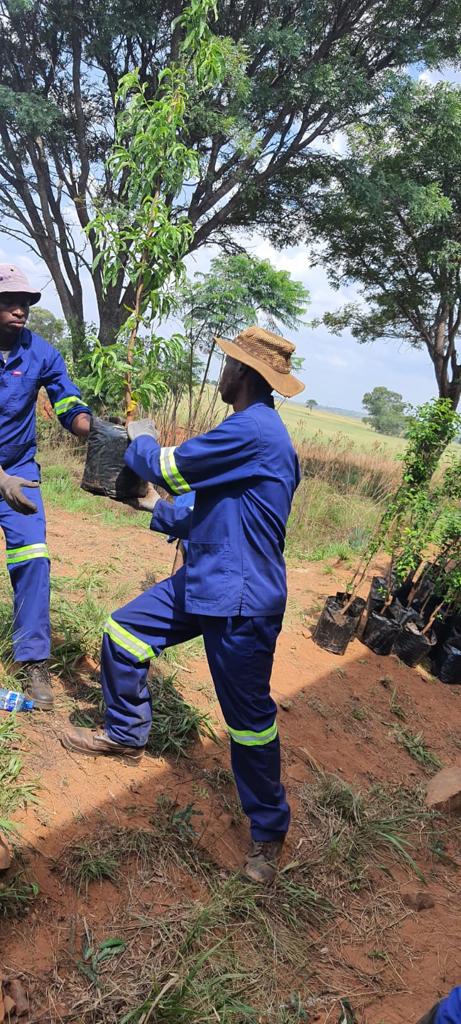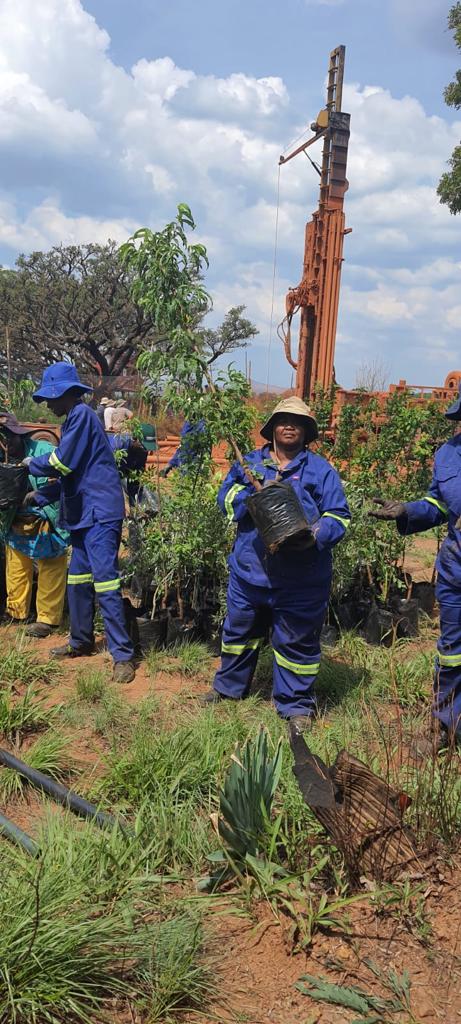The increasing degradation of land and forests in Africa is threatening food security, the environment, jobs and economic growth. TERRAGRN is joining forces with communities and society at large to help change this concerning picture by transforming degraded and unutilised land into sustainable, biodiverse and carbon-sequestering agroforests.
We are starting right in the coal-mining heartland of Mpumalanga, South Africa, with an initiative to turn up to 200,000 hectares of unused land into a sustainable land management agroforestry project over the next 10 years. We are also focusing on Bel Ombre in Mauritius, before expanding our agroforestry systems internationally.
Our aim is to build agroforests that will safeguard food security, accelerate socio-economic development in local communities, and also support energy transition away from fossil fuels to renewable sources.
This comes as a serious lack of progress on nurturing and regenerating land, holds back Africa’s growth potential and undermines efforts to meet the National Development Plan’s goals and the United Nations Sustainable Development Goals (SDGs) of zero hunger by 2030. The impact on economies and people is already being felt on a broad front. In fact, the Food and Agriculture Organisation of the UN says that every year that more forest disappears it costs the continent a 3% loss of GDP.
In its Review of Forest and Landscape Restoration in Africa 2021, the Food and Agriculture Organisation of the UN (FAO) quite rightly says far more needs to be done to tap the continent’s opportunity to return land to sustainable production, protect biodiversity, and shield livelihoods in the battle against climate change. Up to 65% of productive land is degraded, while desertification affects 45% of Africa’s land area, according to the review.
The World Food Summit of 1996 defined food security as existing when all people have access to sufficient, safe, nutritious food to meet their dietary needs for an active and healthy lifestyle at all times. Food insecurity occurs when people’s access to food is minimally adequate and they have trouble meeting their basic needs, while severe food insecurity occurs when there is a critical lack of access to food. And while the overall trend is moving downward, net loss of forests is still increasing in Africa, with four million hectares of forest disappearing every year.
South Africa is not being spared. According to a report released by Statistics South Africa called Measuring Food Security in South Africa: Applying the Food Insecurity Experience Scale, almost 23.6% of South Africans in 2020 were affected by moderate to severe food insecurity, while almost 14.9% experienced severe food insecurity.
According to the report, however, less than 20% of households were involved in agricultural production of food between 2017 and 2020. Despite their small proportion, there has been a decline in the proportion of households involved in agricultural activities.
Due to the ever-increasing amounts of degraded land, an immediate solution to changing this worrying picture lies in regenerating this land and allowing communities to form a key part of the resulting broad ecosystem and value chain. This model will enhance food security and open the door to jobs and growth. It will allow households to produce their own food, upskill and find work.
Added to this, in Mpumalanga it is expected that several coal mines will be shut down and tens of thousands of local jobs will be lost. There is therefore an urgent need to turn these vast lands for productive use and create a “green sustainable economy” championed through a large Nature-based Solution (NbS) such as TERRAGRN.
Our project offers hope and puts the building blocks in place for Africa to truly become a bread basket once again. We will do this by regenerating the degraded landscape in Mpumalanga by improving soil health, enhancing the water table and revitalising local biodiversity. We are applying regenerating nature-based practices, to strengthen soil structures. On this solid foundation we are creating a large agroforest with species diversity emphasising three core aspects, in an integrated agroforestry design, which will produce a productive food forest, commercialise bamboo planting and conserve and protect endangered species.
To achieve nature-based objectives we use regenerative agricultural practices. This means our farming systems focus on actively restoring landscapes rather than simply focusing on not doing damage. These practices ensure long-term productive plant and crop yield.

TERRAGRN has designed a species-diverse food forest by planting fruit trees, nut trees, stone fruit plants and berry bushes among the bamboo clumps. Fruits and crops will be harvested to provide food solutions for local and international markets.
We will use plant and animal compost and necro mass to enhance soil organic matter and will integrate specific cover crops for pest management and soil enrichment. We are also aggregating plant waste and dry leaves for mulching to reduce evaporation and enhance the soil’s moisture retention ability. Our plans include simple and affordable rainwater harvesting structures, with support from local communities, such as contours and trenches at appropriate elevation points to lock rainwater in small pockets, slowdown surface runoffs, and enhance the soil’s ability to absorb moisture and percolate the locked water into groundwater levels.
We have already identified and verified 62 plant species for the initial phase with the Biodiversity Risk Management Office of the Department of Forestry, Fisheries, and the Environment (DFFE).
Of course, none of this will be possible without collaboration and we are working closely with local communities, traditional authorities, the government and finance partners, among others, to bring our project to life.
Africa’s food security needs to be improved as a priority and it’s time we all moved towards finding workable solutions. The planning and talking stage is over – it is time for action, and with this project in Mpumalanga, TERRAGRN is championing change that can make a difference today and assist Africa to secure its own food supply for all its people.
Source: TERRAGRN













Good Day* Can the marketing director please contact Michael Anthony on: anthonym.adv@outlook.com. Kind Regards Michael A
Hi Michael,
We will send through your request.
– Editorial